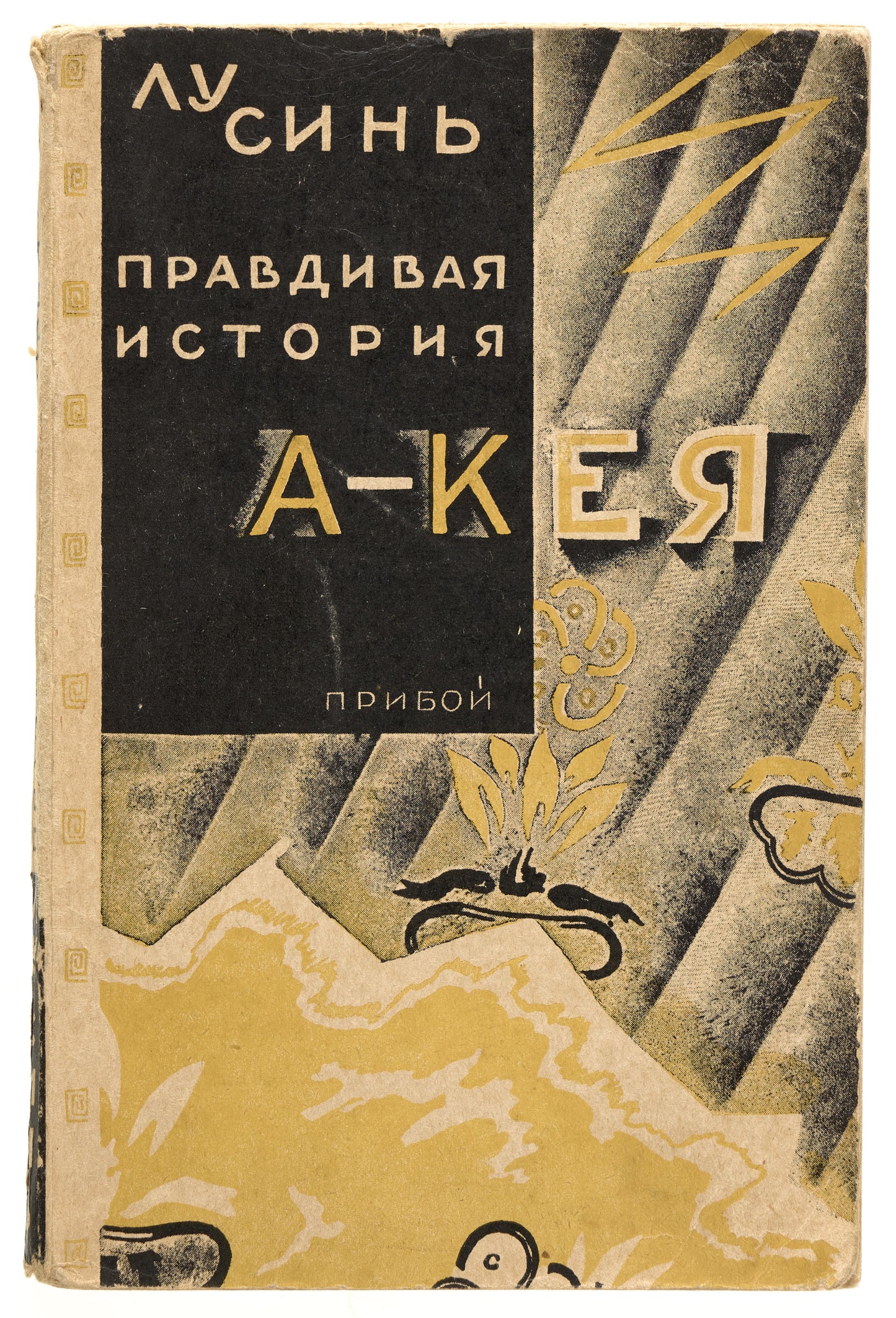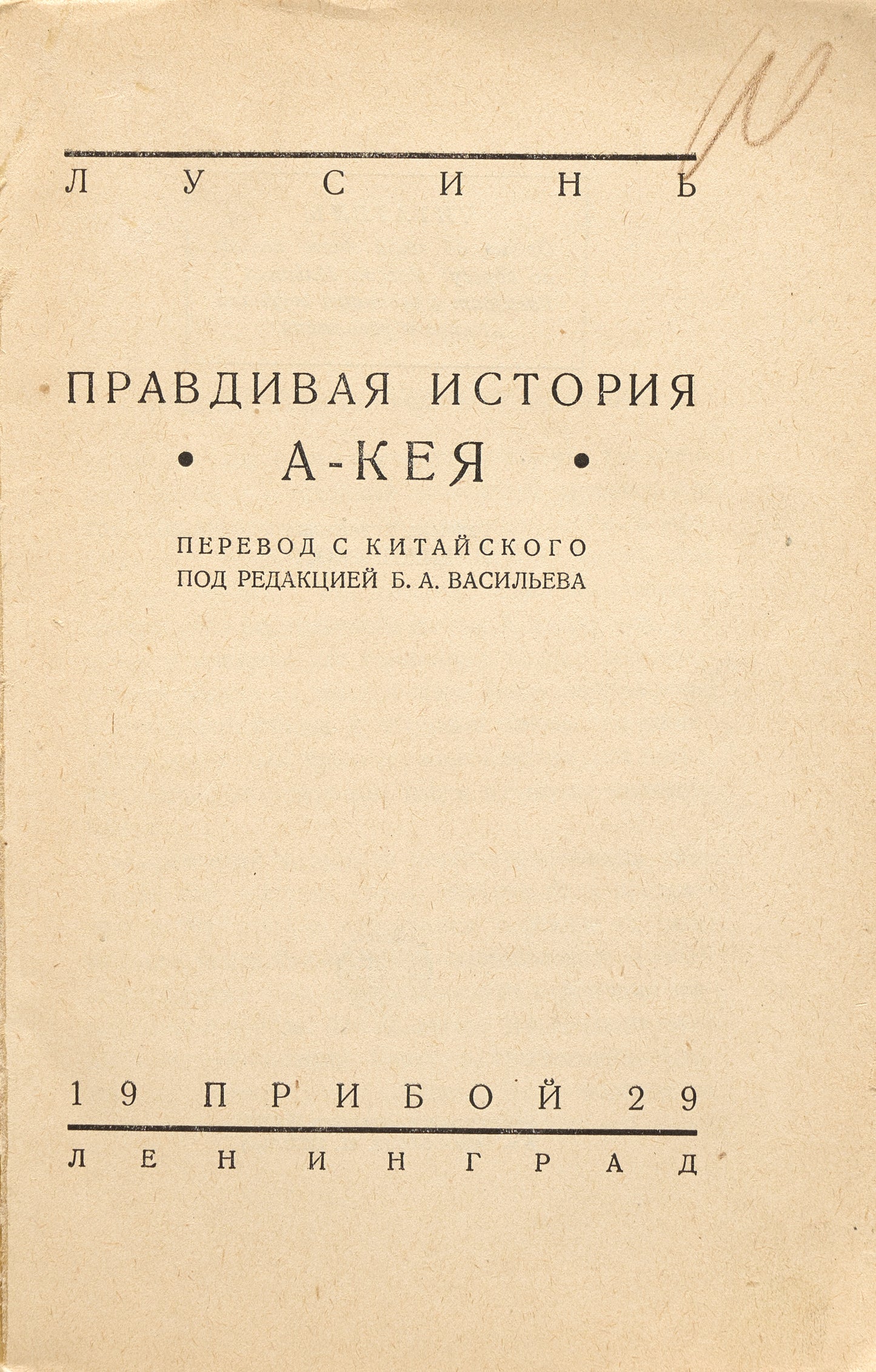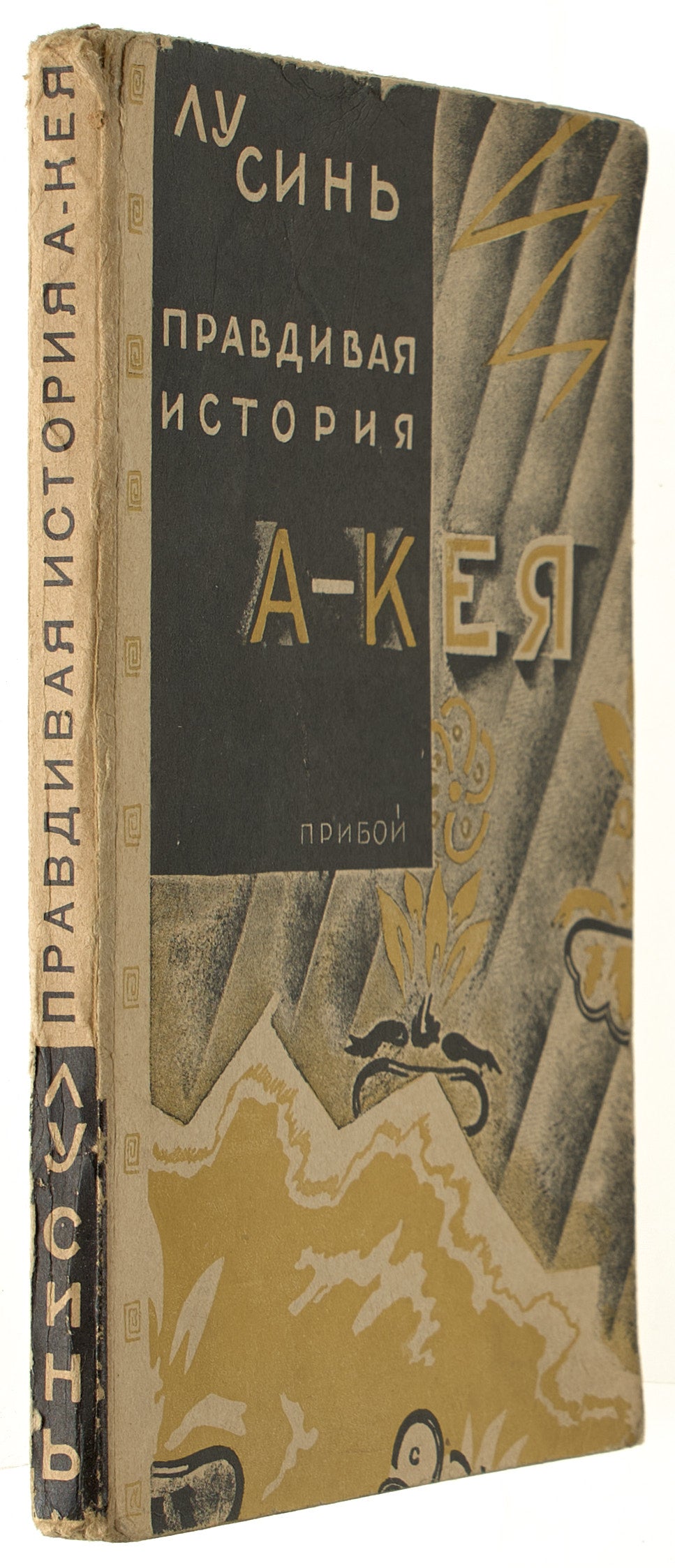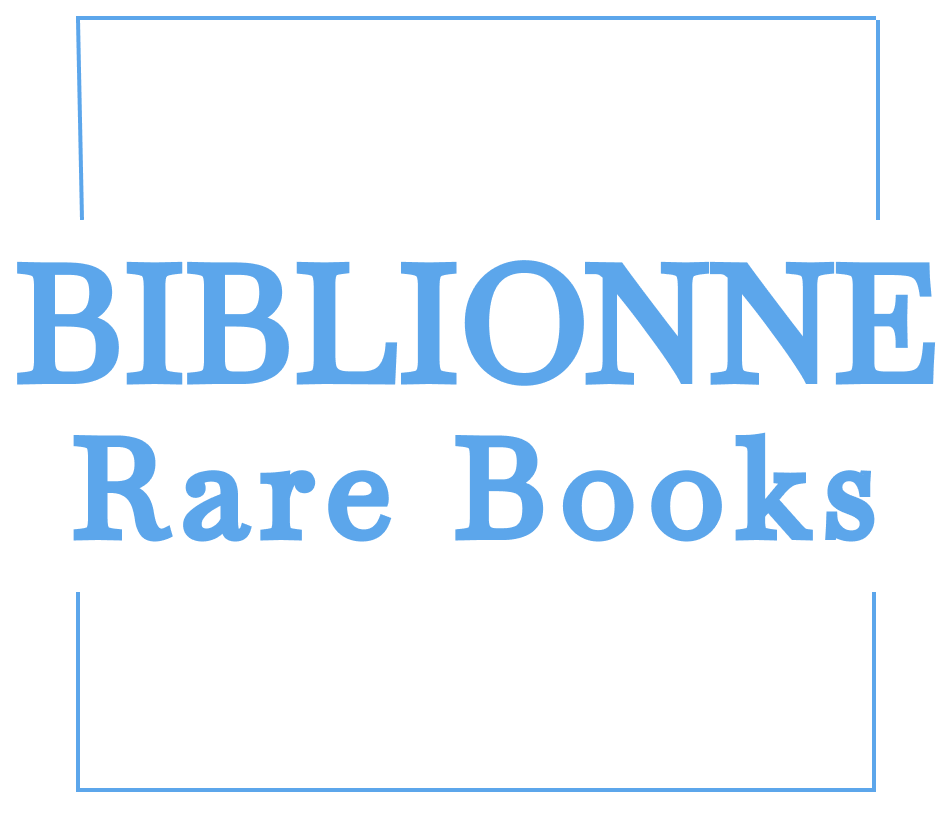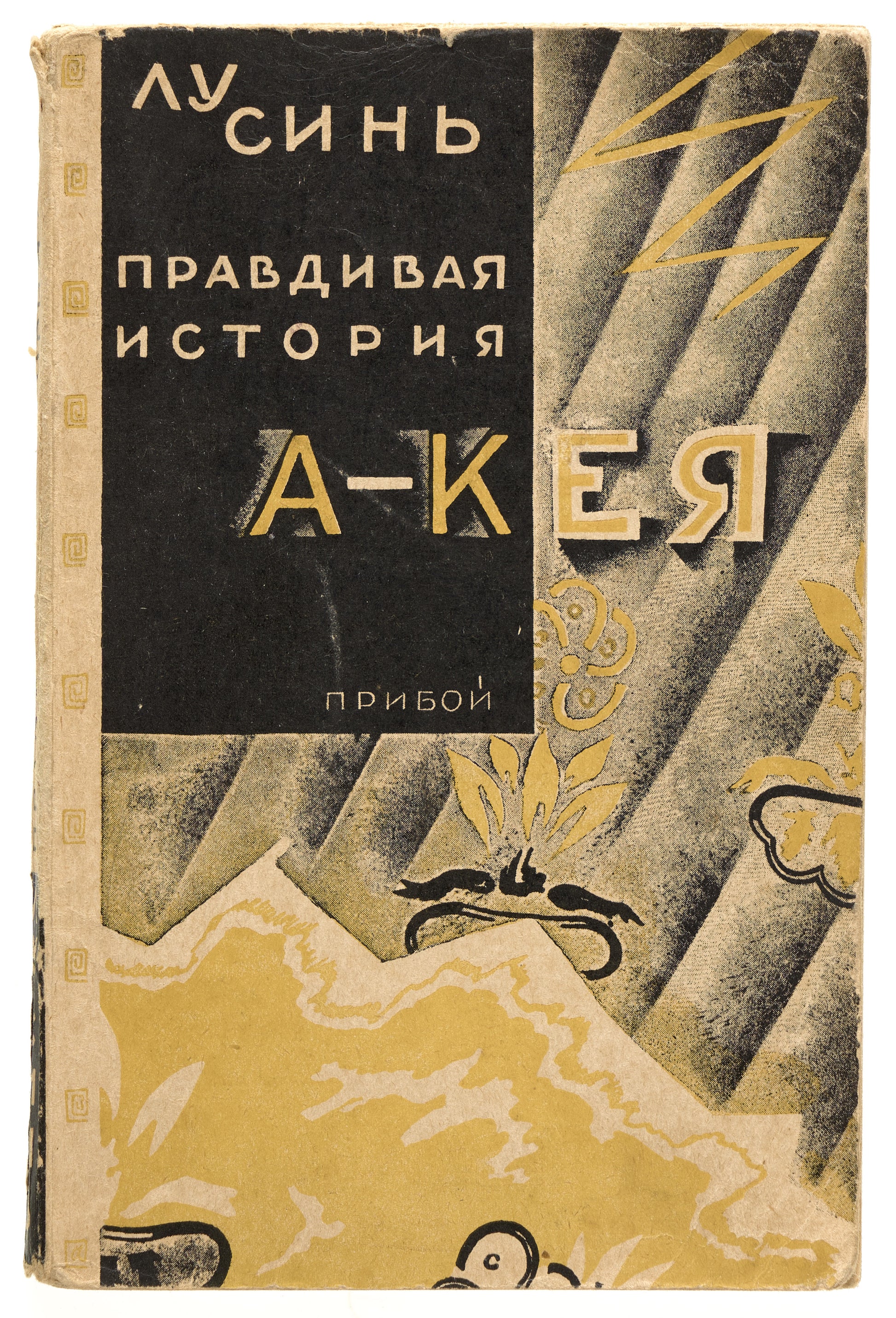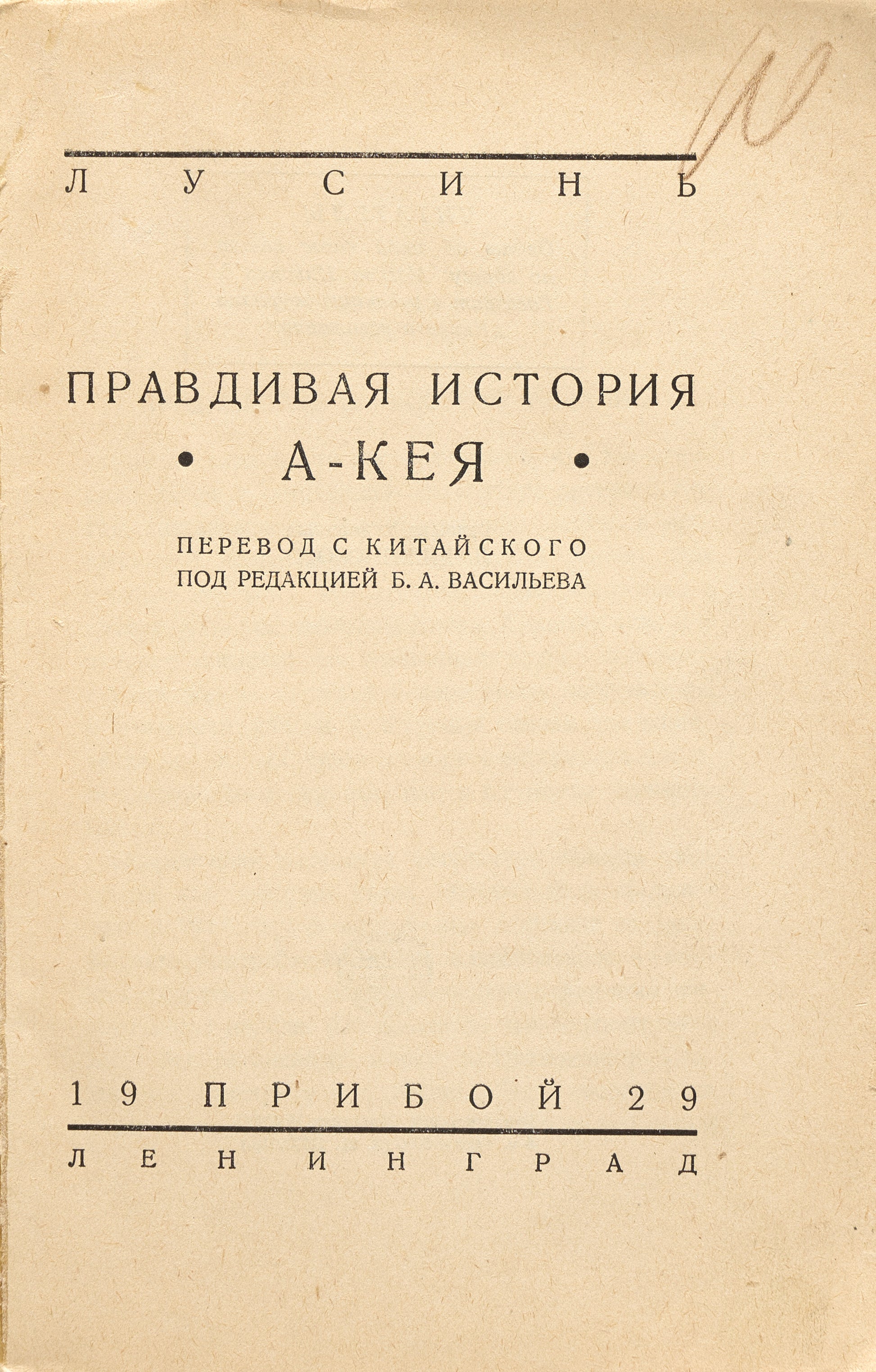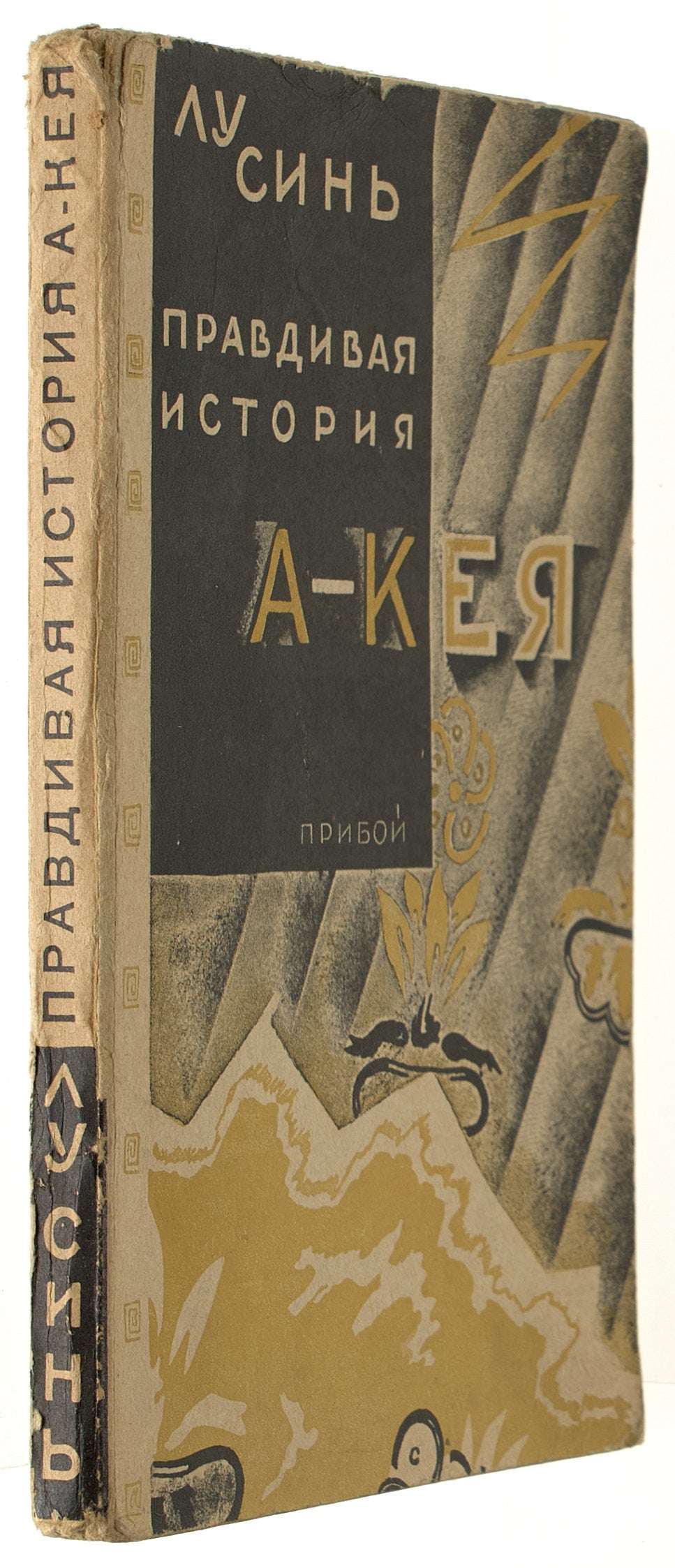Lu Xun
The True Story of Ah Q. Very rare first Lu Xun's Russian book.
The True Story of Ah Q. Very rare first Lu Xun's Russian book.
Couldn't load pickup availability
Lu Xun [The True Story of Ah Q]. Pravdivaia Istoriia A-Keia.
Translation from Chinese under the editorship [and with preface] by B. Vasilev.
[Cover by L. Khizhinskii].
Leningrad, Priboi, 1929.
8vo, 188, [4] pp.
In original pictorial wrappers.
In good condition, overall wear to wrappers and spine, small tears to spine, owner’s mark to title page.
Very rare. First edition of these translations. One of 3 000 copies printed.
This is the very first Russian book by Zhou Shuren, better known by his pen name Lu Xun (鲁迅; 1881-1936), a prominent Chinese writer, essayist, and literary critic who is widely regarded as one of the most important figures in modern Chinese literature. He is often referred to as the 'father of modern Chinese literature'. Mao Zedong himself was a lifelong admirer of Lu Xun's writing. In 1927, the writer was considered for the Nobel Prize in Literature for 'The True Story of Ah Q' (阿Q正傳; 1921-1922) but rejected the possibility of accepting the nomination.
Furthermore, it should be noted that the translation of modern Chinese literature in the USSR began with Lu Xun, and he became one of the most well-known Chinese writers of the 20th century for Russian readers.
The book includes his iconic work 'The True Story of Ah Q' and seven other stories (all are first Russian translations): 'The Story of Hair' (头发的故事, 1920), 'Kong Yiji' (孔乙己, 1919), 'Storm in a Teacup' (风波, 1920), 'My Old Home' (故乡, 1921), 'Village Opera' (社戏, 1922), 'A Happy Family' (幸福的家庭, 1924), and 'Old Mr. Gao' (高老夫子, 1926).
It's important to note that this book is accompanied by Lu Xun's preface 'for the Russian edition', and it's reasonable to assume that the translations were authorized.
The translation and the preface were prepared by Sinologist-philologist Boris Vasilev (1899-1937), who also served as the secretary of the USSR Consulate General in China. Later, he made significant contributions to the development of Chinese language teaching at Leningrad State University and in the USSR as a whole. He was arrested and executed during the Great Purge.
Two other translators were Alexei Shtukin (1904-1963), a Sinologist-philologist who was twice arrested and spent many years in a labor camp, and Zoia Kazakevich (1893-1940), a female Orientalist specialized in China. She worked as a translator in the USSR Consulate in Chuguchak (Tacheng) from 1925-1928. Her husband, also an Orientalist, was repressed, and she was expelled to Kazakhstan.
In the same year as this book, another translation of 'The True Story of Ah Q' appeared in a collection of stories and novels by Chinese authors titled 'True Biography. Stories of modern China'. However, researchers have pointed out that this translation was simplified and contained many glaring mistakes.
We couldn’t trace any copy of this edition in the USA or European libraries via OCLC.
